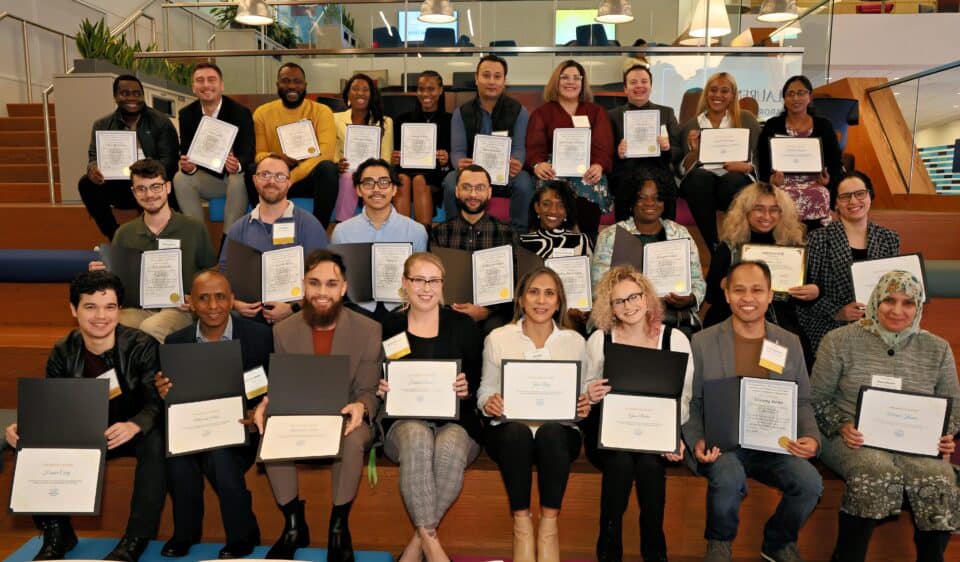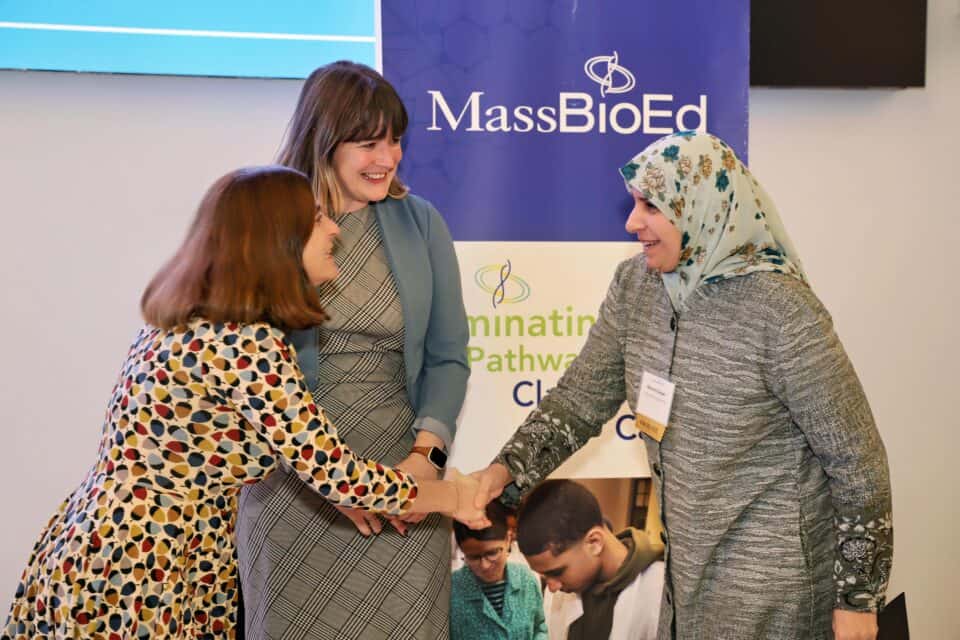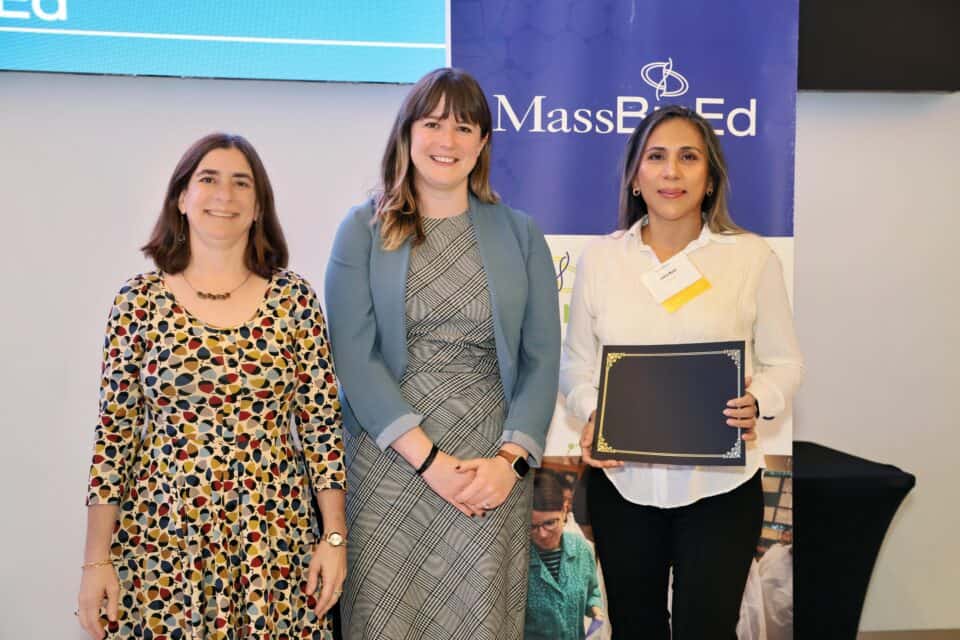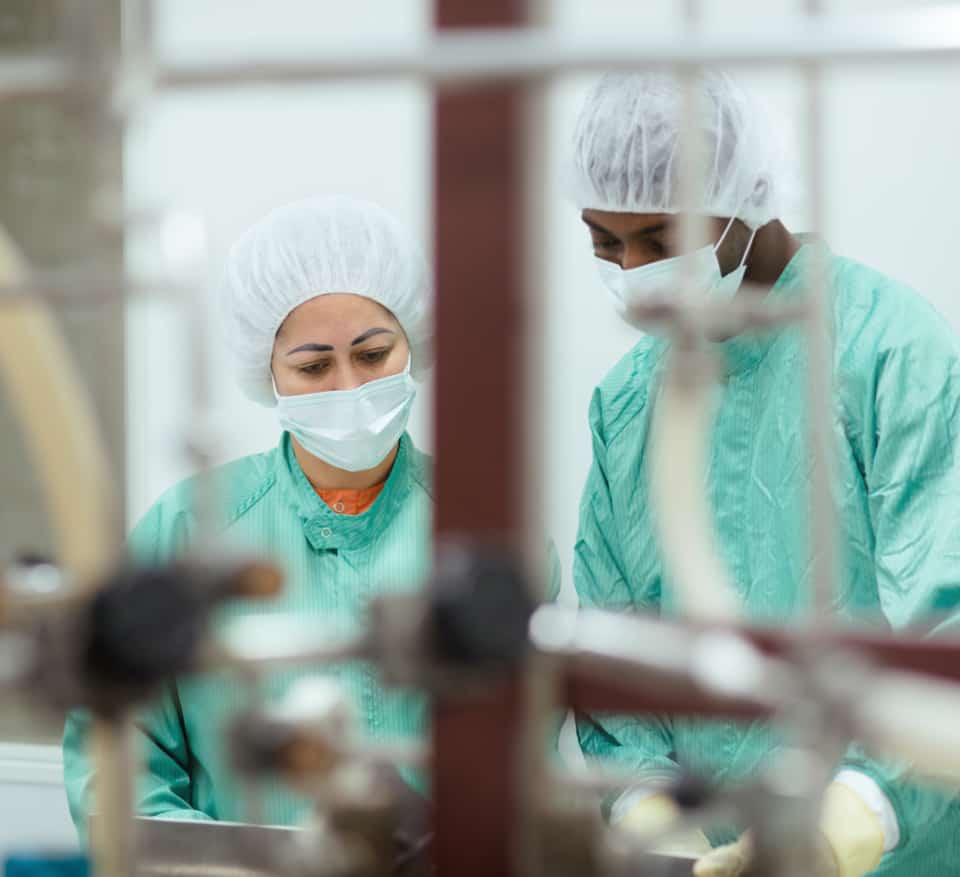Apprenticeship Program





On November 16th, 2023, MassBioEd held our second annual graduation ceremony for the Life Sciences Apprenticeship Program. Over 100 guests joined us at Alnylam Pharmaceuticals to celebrate the accomplishments of the Biomanufacturing Technician and Clinical Trial Associate Apprentices from Greater Boston and Central MA who completed the program.
Summary
MassBioEd created three Apprenticeship programs, one for Biomanufacturing Technicians, one for Clinical Trial Associates and one for Laboratory Support Specialists. These apprenticeships provide accelerated training for individuals new to industry to gain foundational knowledge and acquire industry-recognized skills. Companies that participate in the apprenticeship program gain access to a pool of work-ready candidates with skills perfectly matched to employer needs. Individual apprentices will have opportunities for new careers at sustainable wages. MassBioEd apprenticeships have been designed in close partnership with leading life sciences employers, universities, and professional associations to be scalable across the industry and across the United States. View Employer Partners. Additional career pathways are being planned.
How It Works
- MassBioEd works with employer partners to determine applicant qualifications.
- MassBioEd recruits and assesses prospective apprentices: employer partners interview candidates and select participants to invite for on-the-job training.
- Selected candidates begin the program with a classroom-based, industry-specific curriculum enhanced by soft skills training and general biotech industry overview.
- Apprentices transition into on-the-job training at employer partners at apprenticeship wages.
- When training is complete, apprentices may be offered full-time, permanent employment.
The Problems We Solve
- The supply of qualified people to fuel the Massachusetts-area life sciences industry has not kept up with the growing demand for talent.
- The industry has an oft-stated goal of increasing diversity in the life sciences workforce. Unfortunately, this goal remains elusive using traditional recruitment methods.
- Individuals who are able to succeed in the life sciences may lack a pathway to entry because they do not fit the profile of traditional candidates, lack a four-year higher education degree, or are unaware of career opportunities.

BioManufacturing Technicians (BMTs)
BMTs help deliver life-changing biological products and therapies to patients. Highly skilled technicians prepare materials necessary for cellular growth and production, purify therapeutic products, and monitor operations and document workflows. Beyond basic foundational scientific knowledge, BMTs must exercise strong analytical and collaboration skills. Biomanufacturing is dependent on multiple functional areas working together, offering BMTs an introduction to an array of subsequent career paths.
Laboratory Support Specialists (LSSs)

LSSs coordinate various tasks in lab operations. They are often responsible for the proper storage, cleaning and disposal of both lab supplies and chemical solutions. LSSs must demonstrate strong organizational skills to monitor lab inventory, equipment, and procedures. They need to communicate regularly with other lab personnel, as well as vendors to order supplies and schedule equipment maintenance. LSSs are exposed to career opportunities in a biotech lab and can grow into a Lab Supervisor or Facilities Manager position.

Clinical Trial Associates (CTAs)
CTAs serve an essential function assisting with clinical trials of novel drugs, devices, and therapies. Skilled CTAs understand basic biology and medical terminology and demonstrate fine attention to details, an ability to collaborate, and excellent communication and organizational skills. CTAs are the first occupational step in clinical research. Here, they gain experience and grow their career in the many facets of the drug testing and approval process.

Catch Up:
- Watch the September 2021 Life Sciences Apprenticeship Program Launch
The Life Sciences Apprenticeship Program is funded by a grant award totaling 16% ($915,653) from the U.S. Department of Labor, with 84% or $5,864,660 financed from non-federal sources.

 MassBioEd
MassBioEd